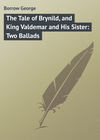Read the book: «Wild Wales: The People, Language, & Scenery», page 19
CHAPTER XXXVIII
Inn at L – The Handmaid – The Decanter – Religious Gentleman – Truly Distressing – Sententiousness – Way to Pay Bills.
I proceeded on my way in high spirits indeed, having now seen not only the tomb of the Tudors, but one of those sober poets for which Anglesey has always been so famous. The country was pretty, with here and there a hill, a harvest-field, a clump of trees or a grove. I soon reached L – , a small but neat town. “Where is the – Arms?” said I to a man whom I met.
“Yonder, sir, yonder,” said he, pointing to a magnificent structure on the left.
I went in and found myself in a spacious hall. A good-looking young woman in a white dress, with a profusion of pink ribbons confronted me with a curtsey. “A pint and a chop!” I exclaimed, with a flourish of my hand and at the top of my voice. The damsel gave a kind of start, and then, with something like a toss of the head, led the way into a very large room, on the left, in which were many tables, covered with snowy-white cloths, on which were plates, knives and forks, the latter seemingly of silver, tumblers, and wineglasses.
“I think you asked for a pint and a chop, sir?” said the damsel, motioning me to sit down at one of the tables.
“I did,” said I, as I sat down, “let them be brought with all convenient speed, for I am in something of a hurry.”
“Very well, sir,” said the damsel, and then with another kind of toss of the head, she went away, not forgetting to turn half round, to take a furtive glance at me, before she went out of the door.
“Well,” said I, as I looked at the tables, with their snowy-white cloths, tumblers, wine-glasses and what not, and at the walls of the room glittering with mirrors, “surely a poet never kept so magnificent an inn before; there must be something in this fellow besides the awen, or his house would never exhibit such marks of prosperity, and good taste – there must be something in this fellow; though he pretends to be a wild erratic son of Parnassus, he must have an eye to the main chance, a genius for turning the penny, or rather the sovereign, for the accommodation here is no penny accommodation, as I shall probably find. Perhaps, however, like myself, he has an exceedingly clever wife who whilst he is making verses, or running about the country swigging ale with people in bulged shoes, or buying pigs or glandered horses, looks after matters at home, drives a swinging trade, and keeps not only herself, but him respectable – but even in that event he must have a good deal of common sense in him, even like myself, who always allow my wife to buy and sell, carry money to the bank, draw cheques, inspect and pay tradesmen’s bills, and transact all my real business, whilst I myself pore over old books, walk about shires, discoursing with gypsies, under hedgerows, or with sober bards – in hedge alehouses.” I continued musing in this manner until the handmaid made her appearance with a tray, on which were covers and a decanter, which she placed before me. “What is that?” said I, pointing to a decanter.
“Only a pint of sherry, sir,” said she of the white dress and ribbons.
“Dear me,” said I, “I ordered no sherry, I wanted some ale – a pint of ale.”
“You called for a pint, sir,” said the handmaid, “but you mentioned no ale, and I naturally supposed that a gentleman of your appearance” – here she glanced at my dusty coat – “and speaking in the tone you did, would not condescend to drink ale with his chop; however, as it seems I have been mistaken, I can take away the sherry and bring you the ale.”
“Well, well,” said I, “you can let the sherry remain; I do not like sherry, and am very fond of ale, but you can let the wine remain; upon the whole I am glad you brought it. Indeed, I merely came to do a good turn to the master of the house.”
“Thank you, sir,” said the handmaid.
“Are you his daughter?” said I.
“O no, sir,” said the handmaid reverently; “only his waiter.”
“You may be proud to wait on him,” said I.
“I am, sir,” said the handmaid, casting down her eyes.
“I suppose he is much respected in the neighbourhood?” said I.
“Very much so, sir,” said the damsel, “especially amidst the connection.”
“The connection,” said I. “Ah I see, he has extensive consanguinity, most Welsh have. But,” I continued, “there is such a thing as envy in the world, and there are a great many malicious people in the world, who speak against him.”
“A great many, sir, but we take what they say from whence it comes.”
“You do quite right,” said I. “Has your master written any poetry lately?”
“Sir!” said the damsel, staring at me.
“Any poetry,” said I, “any pennillion?”
“No, sir,” said the damsel; “my master is a respectable man, and would scorn to do anything of the kind.”
“Why,” said I, “is not your master a bard as well as an innkeeper?”
“My master, sir, is an innkeeper,” said the damsel; “but as for the other, I don’t know what you mean.”
“A bard,” said I, “is a prydydd, a person who makes verses – pennillion; does not your master make them?”
“My master make them? No, sir; my master is a religious gentleman, and would scorn to make such profane stuff.”
“Well,” said I, “he told me he did within the last two hours. I met him at Dyffryn Gaint, along with another man, and he took me into the public-house, where we had a deal of discourse.”
“You met my master at Dyffryn Gaint?” said the damsel.
“Yes,” said I, “and he treated me with ale, told me that he was a poet, and that he was going to Bangor to buy a horse or a pig.”
“I don’t see how that could be, sir,” said the damsel; “my master is at present in the house, rather unwell, and has not been out for the last three days. There must be some mistake.”
“Mistake,” said I. “Isn’t this the – Arms?”
“Yes, sir, it is.”
“And isn’t your master’s name W – ?”
“No, sir, my master’s name is H – , and a more respectable man – ”
“Well,” said I, interrupting her, “all I can say is that I met a man in Dyffryn Gaint, who treated me with ale, told me that his name was W – , that he was a prydydd and kept the Arms at L – .”
“Well,” said the damsel, “now I remember there is a person of that name in L – , and he also keeps a house which he calls the – Arms, but it is only a public-house.”
“But,” said I, “is he not a prydydd, an illustrious poet; does he not write pennillion which everybody admires?”
“Well,” said the damsel, “I believe he does write things which he calls pennillion, but everybody laughs at them.”
“Come, come,” said I, “I will not hear the productions of a man who treated me with ale spoken of with disrespect. I am afraid that you are one of his envious maligners, of which he gave me to understand that he had a great many.”
“Envious, sir! not I indeed; and if I were disposed to be envious of anybody it would not be of him; O dear, why he is – ”
“A bard of Anglesey,” said I, interrupting her, “such a person as Gronwy Owen describes in the following lines, which by the bye were written upon himself: —
“‘Where’er he goes he’s sure to find
Respectful looks and greetings kind.’
“I tell you that it was out of respect to that man that I came to this house. Had I not thought that he kept it, I should not have entered it and called for a pint and chop. How distressing! how truly distressing!”
“Well, sir,” said the damsel, “if there is anything distressing you have only to thank your acquaintance who chooses to call his mughouse by the name of a respectable hotel, for I would have you know that this is an hotel, and kept by a respectable and religious man, and not kept by – . However, I scorn to say more, especially as I might be misinterpreted. Sir, there’s your pint and chop, and if you wish for anything else you can ring. Envious, indeed, of such. Marry come up!” and with a toss of her head, higher than any she had hitherto given, she bounced out of the room.
Here was a pretty affair! I had entered the house and ordered the chop and pint in the belief that by so doing I was patronising the poet, and lo, I was not in the poet’s house, and my order would benefit a person for whom, however respectable and religious, I cared not one rush. Moreover, the pint which I had ordered appeared in the guise not of ale, which I am fond of, but of sherry, for which I have always entertained a sovereign contempt, as a silly, sickly compound, the use of which will transform a nation, however bold and warlike by nature, into a race of sketchers, scribblers, and punsters, in fact into what Englishmen are at the present day. But who was to blame? Why, who but the poet and myself? The poet ought to have told me that there were two houses in L – bearing the sign of the – Arms, and that I must fight shy of the hotel and steer for the pot-house, and when I gave the order I certainly ought to have been a little more explicit; when I said a pint, I ought to have added – of ale. Sententiousness is a fine thing sometimes, but not always. By being sententious here, I got sherry, which I dislike, instead of ale which I like, and should have to pay more for what was disagreeable than I should have had to pay for what was agreeable. Yet I had merely echoed the poet’s words in calling for a pint and chop, so after all the poet was to blame for both mistakes. But perhaps he meant that I should drink sherry at his house, and when he advised me to call for a pint, he meant a pint of sherry. But the maid had said he kept a pot-house, and no pot-houses have wine-licences; but the maid after all might be an envious baggage, and no better than she should be. But what was now to be done? Why, clearly make the best of the matter, eat the chop and leave the sherry. So I commenced eating the chop, which was by this time nearly cold. After eating a few morsels I looked at the sherry; “I may as well take a glass,” said I. So with a wry face I poured myself out a glass.
“What detestable stuff!” said I, after I had drunk it. “However, as I shall have to pay for it I may as well go through with it.” So I poured myself out another glass, and by the time I had finished the chop I had finished the sherry also.
And now what was I to do next? Why, my best advice seemed to be to pay my bill and depart. But I had promised the poet to patronise his house, and had by mistake ordered and despatched a pint and chop in a house which was not the poet’s. Should I now go to his house and order a pint and chop there? Decidedly not! I had patronised a house which I believed to be the poet’s; if I patronised the wrong one, the fault was his, not mine – he should have been more explicit. I had performed my promise, at least in intention.
Perfectly satisfied with the conclusion I had come to, I rang the bell. “The bill?” said I to the handmaid.
“Here it is!” said she, placing a strip of paper in my hand.
I looked at the bill, and, whether moderate or immoderate, paid it with a smiling countenance, commended the entertainment highly, and gave the damsel something handsome for her trouble in waiting on me.
Reader, please to bear in mind that as all bills must be paid, it is much more comfortable to pay them with a smile than with a frown, and that it is much better by giving sixpence, or a shilling to a poor servant, which you will never miss at the year’s end, to be followed from the door of an inn by good wishes, than by giving nothing to be pursued by cutting silence, or the yet more cutting Hm!
“Sir,” said the good-looking, well-ribboned damsel, “I wish you a pleasant journey, and whenever you please again to honour our establishment with your presence, both my master and myself shall be infinitely obliged to you.”
CHAPTER XXXIX
Oats and Methodism – The Little Girl – Tŷ Gwyn – Bird of the Roof – Purest English – Railroads – Inconsistency – The Boots.
It might be about four in the afternoon when I left L – bound for Pen Caer Gybi, or Holy Head, seventeen miles distant. I reached the top of the hill on the west of the little town, and then walked briskly forward. The country looked poor and mean – on my right was a field of oats, on my left a Methodist chapel – oats and Methodism! what better symbols of poverty and meanness?
I went onward a long way; the weather was broiling hot, and I felt thirsty. On the top of a long ascent stood a house by the roadside. I went to the door and knocked – no answer – “Oes neb yn y tŷ?” said I.
“Oes!” said an infantine voice.
I opened the door, and saw a little girl. “Have you any water?” said I.
“No,” said the child; “but I have this,” and she brought me some butter-milk in a basin. I just tasted it, gave the child a penny and blessed her.
“Oes genoch tad?”
“No,” said she; “but I have a mam.” Tad im mam; blessed sounds; in all languages expressing the same blessed things.
After walking for some hours I saw a tall blue hill in the far distance before me. “What is the name of that hill?” said I to a woman whom I met.
“Pen Caer Gybi,” she replied.
Soon after I came to a village near to a rocky gulley. On inquiring the name of the village, I was told it was Llan yr Afon, or the church of the river. I passed on; the country was neither grand nor pretty – it exhibited a kind of wildness, however, which did not fail to interest me – there were stones, rocks, and furze in abundance. Turning round the corner of a hill, I observed through the mists of evening, which began to gather about me, what seemed to be rather a genteel house on the road-side, on my left, and a little way behind it a strange kind of monticle, on which I thought I observed tall upright stones. Quickening my pace, I soon came parallel with the house, which, as I drew nigh, ceased to look like a genteel house, and exhibited an appearance of great desolation. It was a white, or rather grey structure of some antiquity. It was evidently used as a farm-house, for there was a yard adjoining to it, in which were stacks and agricultural implements. Observing two men in the yard, I went in. They were respectable, farming-looking men, between forty and fifty; one had on a coat and hat, the other a cap and jacket. “Good evening,” I said in Welsh.
“Good evening,” they replied in the same language, looking inquiringly at me.
“What is the name of this place?” said I.
“It is called Tŷ gwyn,” said the man of the hat.
“On account of its colour, I suppose?” said I.
“Just so,” said the man of the hat.
“It looks old,” said I.
“And it is old,” he replied. “In the time of the Papists it was one of their chapels.”
“Does it belong to you?” I demanded.
“O no, it belongs to one Mr. Sparrow from Liverpool. I am his bailiff, and this man is a carpenter who is here doing a job for him.”
Here ensued a pause, which was broken by the man of the hat saying in English to the man of the cap —
“Who can this strange fellow be? he has not a word of English, and though he speaks Welsh, his Welsh sounds very different from ours. Who can he be?”
“I am sure I don’t know,” said the other.
“I know who he is,” said the first; “he comes from Llydaw, or Armorica, which was peopled from Britain estalom, and where I am told the real old Welsh language is still spoken.”
“I think I heard you mention the word Llydaw?” said I to the man of the hat.
“Ah,” said the man of the hat, speaking Welsh, “I was right after all; oh, I could have sworn you were Llydaweg. Well, how are the descendants of the ancient Britons getting on in Llydaw?”
“They were getting on tolerably well,” said I, “when I last saw them, though all things do not go exactly as they could wish.”
“Of course not,” said he of the hat. “We too have much to complain of here; the lands are almost entirely taken possession of by Saxons, wherever you go you will find them settled, and a Saxon bird of the roof must build its nest in Gwyn dŷ.”
“You call a sparrow in your Welsh a bird of the roof, do you not?” said I.
“We do,” said he of the hat. “You speak Welsh very well, considering you were not born in Wales. It is really surprising that the men of Llydaw should speak the iaith so pure as they do.”
“The Welsh, when they went over there,” said I, “took effectual means that their descendants should speak good Welsh, if all tales be true.”
“What means?” said he of the hat.
“Why,” said I, “after conquering the country they put all the men to death, and married the women, but before a child was born they cut out all the women’s tongues, so that the only language the children heard when they were born was pure Cumraeg. What do you think of that?”
“Why, that it was a cute trick,” said he of the hat.
“A more clever trick I never heard,” said he of the cap.
“Have you any memorials in the neighbourhood of the old Welsh?” said I.
“What do you mean?” said the man of the hat.
“Any altars of the Druids?” said I; “any stone tables?”
“None,” said the man of the hat.
“What may those stones be?” said I, pointing to the stones which had struck my attention.
“Mere common rocks,” said the man.
“May I go and examine them?” said I.
“O yes,” said he of the hat, “and we will go with you.”
We went to the stones, which were indeed common rocks, and which, when I reached them, presented quite a different appearance from that which they presented to my eye when I viewed them from afar.
“Are there many altars of the Druids in Llydaw?” said the man of the hat.
“Plenty,” said I; “but those altars are older than the time of the Welsh colonists, and were erected by the old Gauls.”
“Well,” said the man of the cap, “I am glad to have seen a man of Llydaw.”
“Whom do you call a man of Llydaw?” said I.
“Whom but yourself?” said he of the hat.
“I am not a man of Llydaw,” said I in English, “but of Norfolk, where the people eat the best dumplings in the world, and speak the purest English. Now a thousand thanks for your civility. I would have some more chat with you, but night is coming on, and I am bound to Holyhead.”
Then leaving the men staring after me, I bent my steps towards Holyhead.
I passed by a place called Llan something, standing lonely on its hill. The country around looked sad and desolate. It is true night had come on when I saw it.
On I hurried. The voices of children sounded sweetly at a distance across the wild champaign on my left.
It grew darker and darker. On I hurried along the road; at last I came to lone, lordly groves. On my right was an open gate and a lodge. I went up to the lodge. The door was open, and in a little room I beheld a nice-looking old lady sitting by a table, on which stood a lighted candle, with her eyes fixed on a large book.
“Excuse me,” said I; “but who owns this property?”
The old lady looked up from her book, which appeared to be a Bible, without the slightest surprise, though I certainly came upon her unawares, and answered:
“Mr. John Wynn.”
I shortly passed through a large village, or rather town, the name of which I did not learn. I then went on for a mile or two, and saw a red light at some distance. The road led nearly up to it, and then diverged towards the north. Leaving the road, I made towards the light by a lane, and soon came to a railroad station.
“You won’t have long to wait, sir,” said a man – “the train to Holyhead will be here presently.”
“How far is it to Holyhead?” said I.
“Two miles, sir, and the fare is only sixpence.”
“I despise railroads,” said I, “and those who travel by them,” and without waiting for an answer returned to the road. Presently I heard the train – it stopped for a minute at the station, and then continuing its course, passed me on my left hand, voiding fierce sparks, and making a terrible noise – the road was a melancholy one; my footsteps sounded hollow upon it. I seemed to be its only traveller – a wall extended for a long, long way on my left. At length I came to a turnpike. I felt desolate, and wished to speak to somebody. I tapped at the window, at which there was a light; a woman opened it. “How far to Holyhead?” said I in English.
“Dim Saesneg,” said the woman.
I repeated my question in Welsh.
“Two miles,” said she.
“Still two miles to Holyhead by the road,” thought I. “Nos da,” said I to the woman, and sped along. At length I saw water on my right, seemingly a kind of bay, and presently a melancholy ship. I doubled my pace, which was before tolerably quick, and soon saw a noble-looking edifice on my left, brilliantly lighted up. “What a capital inn that would make,” said I, looking at it wistfully, as I passed it. Presently I found myself in the midst of a poor, dull, ill-lighted town.
“Where is the inn?” said I to a man.
“The inn, sir? you have passed it. The inn is yonder,” he continued, pointing towards the noble-looking edifice.
“What, is that the inn?” said I.
“Yes, sir, the railroad hotel – and a first-rate hotel it is.”
“And are there no other inns?”
“Yes; but they are all poor places. No gent puts up at them – all the gents by the railroad put up at the railroad hotel.”
What was I to do? after turning up my nose at the railroad, was I to put up at its hotel? Surely to do so would be hardly acting with consistency. “Ought I not rather to go to some public-house, frequented by captains of fishing-smacks, and be put in a bed a foot too short for me,” said I, as I reflected on my last night’s couch at Mr. Pritchard’s. “No, that won’t do – I shall go to the hotel; I have money in my pocket, and a person with money in his pocket has surely a right to be inconsistent if he pleases.”
So I turned back and entered the railway hotel with lofty port and with sounding step, for I had twelve sovereigns in my pocket, besides a half one, and some loose silver, and feared not to encounter the gaze of any waiter or landlord in the land. “Send boots!” I roared to the waiter, as I flung myself down in an arm-chair in a magnificent coffee-room. “What the deuce are you staring at? send boots, can’t you, and ask what I can have for dinner.”
“Yes, sir,” said the waiter, and with a low bow departed.
“These boots are rather dusty,” said the boots, a grey-haired, venerable-looking man, after he had taken off my thick, solid, square-toed boots. “I suppose you came walking from the railroad?”
“Confound the railroad!” said I: “I came walking from Bangor. I would have you know that I have money in my pocket, and can afford to walk. I am fond of the beauties of nature; now it is impossible to see much of the beauties of nature unless you walk. I am likewise fond of poetry, and take especial delight in inspecting the birth-places and haunts of poets. It is because I am fond of poetry, poets and their haunts, that I am come to Anglesey. Anglesey does not abound in the beauties of nature, but there never was such a place for poets; you meet a poet, or the birth-place of a poet, everywhere.”
“Did your honour ever hear of Gronwy Owen?” said the old man.
“I have,” I replied, “and yesterday I visited his birth-place; so you have heard of Gronwy Owen?”
“Heard of him, your honour; yes, and read his works. That ‘Cowydd y Farn’ of his is a wonderful poem.”
“You say right,” said I; “the ‘Cowydd of Judgment’ contains some of the finest things ever written – that description of the toppling down of the top crag of Snowdon, at the day of Judgment, beats anything in Homer.”
“Then there was Lewis Morris, your honour,” said the old man, “who gave Gronwy his education and wrote ‘The Lasses of Meirion’ – and – ”
“And ‘The Cowydd to the Snail,’” said I, interrupting him – “a wonderful man he was.”
“I am rejoiced to see your honour in our house,” said boots; “I never saw an English gentleman before who knew so much about Welsh poetry, nor a Welsh one either. Ah, if your honour is fond of poets and their places you did right to come to Anglesey – and your honour was right in saying that you can’t stir a step without meeting one; you have an example of the truth of that in me – for to tell your honour the truth, I am a poet myself, and no bad one either.”
Then tucking the dusty boots under his arm, the old man, with a low congee, and a “Good-night, your honour!” shuffled out of the room.




















